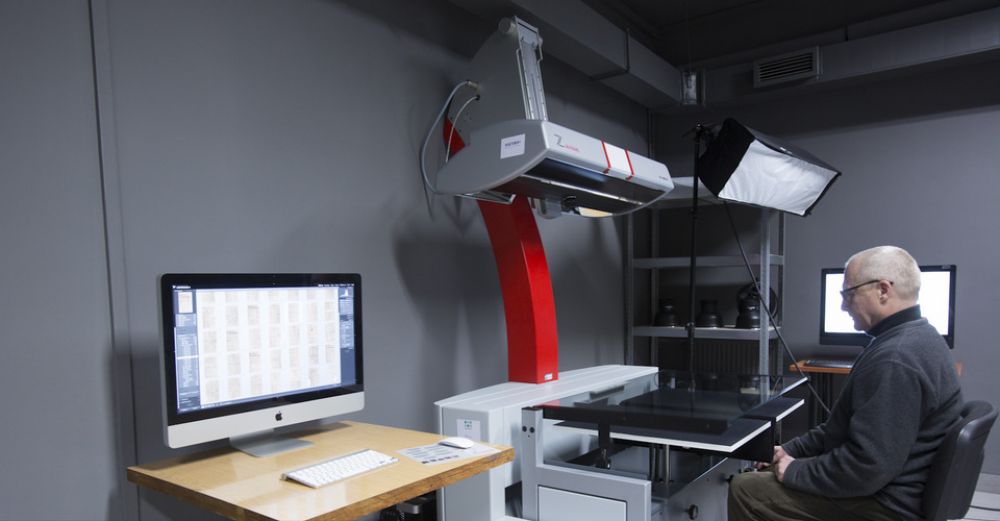- News
- Events
- Oneg Shabbat
- Collections
- Research
- Exhibitions
- Education
- Publishing Department
- Genealogy
- About the Institute
- Bookstore


Exactly last year, in October 2012, we began the construction of the Main Judaic Library — a digital archive, which will store the collection of books and manuscripts and the most important historical documents constituting the heritage of Polish Jews. The implementation of one of the most important projects of the Jewish Historical Institute was possible thanks to the financial support of the Ministry of Culture and National Heritage in PW Kultura + / priorytet Digitalizacja and the support provided by Taube Philantropies and the Association of the Jewish Historical Institute.
„The Main Judaic Library is the first step to achieving one of the top priorities of the Jewish Historical Institute: building a digital repository containing all of the library’s and archive’s collections, being at the disposal of the Institute. The volume includes 80,000 books, 585 Jewish newspapers, and in terms of the archival documents, the estimated number of pages is about 7 million,” said Prof Pawel Spiewak, Director of the Jewish Historical Institute.
„Within the structure of the Institute, a team aimed at working on and describing the collection has been appointed. The team consists of renowned historians, whose experience and expertise will provide the best description of digitized documents in terms of their content. We have already done a lot, but this is only the beginning of work on preserving our extensive collection and making it available to the general public,” adds Prof Spiewak, noting that the work on the documents from the archives of the Jewish Historical Institute is treated as the most important task of the Institute. Therefore he has appointed all technical staff to work on it.
By the end of July 2014, the digitization of the collection of antique books from the sixteenth to eighteenth centuries will have been conducted. The collection includes numerous editions of the Bible and the Talmud, Kabbalah works, Rabbinical responses, works on the subjects of history, linguistics, philosophy, and a collection of magazines from the nineteenth and early twentieth centuries in Yiddish, German and Polish.